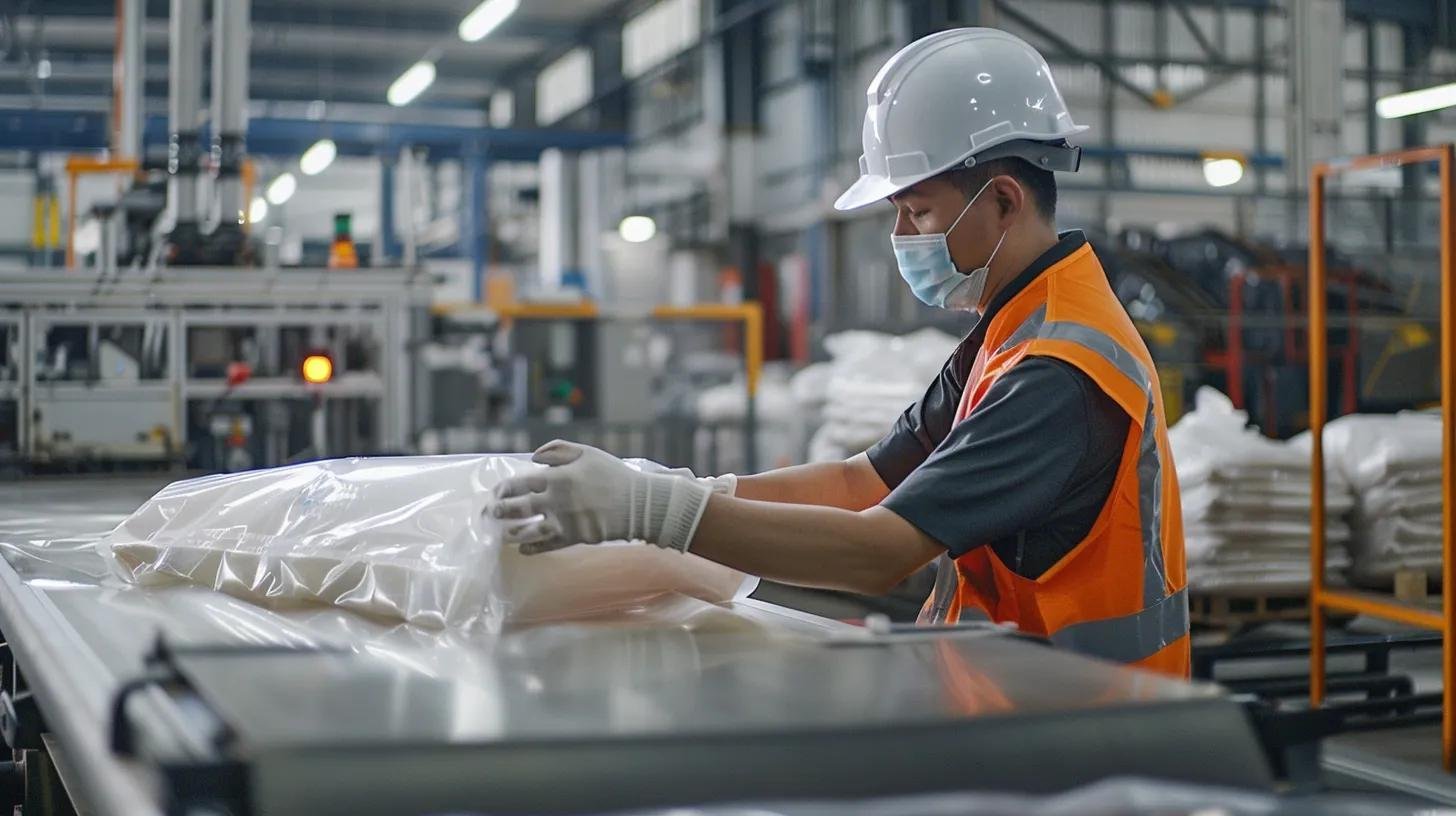The Ultimate Guide to Maintenance for Bag Making Machines

The Ultimate Guide to Maintenance for Bagaking Machines
Downtime is the enemy of every industrial production line. Whether you’re producing paper, plastic, or woven bags, the performance of your bag making machine is crucial to your output, cost-efficiency, and product quality.
In this guide, we cover everything production managers and maintenance teams need to know about keeping their industrial bagging machines in top condition — from daily checks to predictive maintenance strategies.
A well-maintained machine isn’t just more reliable — it also extends the life of your investment and improves overall production efficiency.
Why it matters for Bag Making Machines?
Bag making machines operate under high-speed, repetitive conditions, often 24/7. Over time, this causes wear on components like:
• Roll feeders and tension control systems
• Sealing and cutting blades
• Heat elements and temperature sensors
• Pneumatic cylinders and motors
Regular maintenance minimizes the risk of:
• Unplanned breakdowns
• Inconsistent bag quality
• Increased scrap or material waste
• Longer lead times or missed deadlines
When servicing is neglected, the cost of downtime and emergency repairs can quickly exceed the cost of preventive upkeep
1. Daily, Weekly, and Monthly Maintenance Tasks
Here’s a simple breakdown of key tasks by frequency. These are general guidelines — always refer to your machine’s service manual.
✅ Daily Maintenance
• Check air pressure and compressor filters
• Clean dust and debris from sealing units
• Inspect film roll alignment and tension
• Check for unusual noises or vibrations
• Lubricate moving parts if required
📅 Weekly Maintenance
• Inspect cutting blades for wear or chipping
• Clean photoelectric sensors and safety light curtains
• Calibrate temperature controllers
• Test emergency stop buttons and interlocks
📆 Monthly Maintenance
• Inspect belt tension and motor couplings
• Clean or replace filters in pneumatic systems
• Review firmware or software error logs
• Perform test runs for all bag formats
A preventive checklist can be customized to your specific machine type — whether you’re using a paper bag making line, automatic bagging machine, or a form-fill-seal system.

2. Common Issues and How to Prevent Them
❌ Problem: Misaligned Bags or Seal Failures
Cause: Film tension inconsistency, worn blades, or sensor failure
Prevention: Routine alignment checks and part replacement scheduling
❌ Problem: Material Jams or Feed Errors
Cause: Worn rollers, poor tension control, or incorrect bag format loading
Prevention: Train operators thoroughly and automate error logging
❌ Problem: Heat Element Burnouts
Cause: Overuse, voltage fluctuations, or improper cooling
Prevention: Monitor heating cycles and use surge protection
By tracking failure patterns, you can implement a predictive maintenance model — using sensor data and runtime logs to plan interventions before failure occurs.

3. Spare Parts Strategy: Stock What Matters
A smart inventory of spare parts is key to reducing machine downtime. Focus on:
• Cutting blades and sealing wires
• Bearings and belts
• Temperature probes and thermocouples
• HMI touchscreens and control modules
• Pneumatic valves and cylinders
Pro tip: Track usage frequency to determine what parts should be kept in-house. Newlong offers tailored spare parts kits for each bag making model.

4. Training and Documentation: Empower Your Team
No machine runs better than the people who maintain it. Ensure your operators and technicians are trained to:
• Identify early warning signs of wear or failure
• Perform safe, fast changeovers and cleaning
• Troubleshoot basic mechanical and software errors
• Understand how to work with eco-friendly packaging machines and their specific materials
Create a manual or SOP binder that’s easily accessible near the machine, and consider using QR codes for quick access to how-to videos or checklists.
5. Predictive Maintenance: The Future of Uptime
Advanced industrial bagging machines are increasingly equipped with sensors and smart monitoring features that allow:
• Vibration analysis to detect misalignment
• Thermal imaging to monitor heating units
• Usage logs to predict part wear cycles
• Remote diagnostics via cloud-connected PLCs
Predictive maintenance improves uptime and extends the lifecycle of your automatic bagging machine, especially in high-output environments like food, chemicals, or construction.
6. Partnering With the Right Service Provider
Even with internal maintenance, working with an experienced service partner can make all the difference.
What to look for in a bagging machine service provider:
• Fast-response support team
• Availability of OEM-certified spare parts
• Remote troubleshooting capabilities
• Preventive maintenance programs
• Optional machine upgrades or retrofits
At Newlong Holland B.V., we combine Japanese-engineered quality with local Dutch service, offering long-term support for all models of bag making and bagging machines.

Bonus Tip: Keep It Clean and Dry
This may sound simple, but many machine issues arise from poor cleaning habits. Dust, product residue, or moisture can interfere with sensors, bearings, and sealing accuracy.
Make sure to:
• Wipe down exposed moving parts daily
• Use compressed air (not water) to clean control panels
• Keep paper bag materials in dry storage areas to prevent warping
Conclusion: Make Maintenance a Competitive Advantage
Your bag making machine is the backbone of your packaging process. With the right maintenance approach — including daily routines, smart spare part strategies, and predictive tools — you’ll not only reduce downtime but also extend the life of your investment.
Want to improve your packaging line’s efficiency, reliability, and sustainability?
Explore Our Services and Bagging Machine Solutions
At Newlong, we offer full-service support for your industrial bagging machines, from setup to spare parts and proactive maintenance. Whether you’re working with plastic, paper, or eco-friendly packaging machines, we’re here to keep your operation running at full speed.
Contact us for a free consultation or request our preventive service program.
